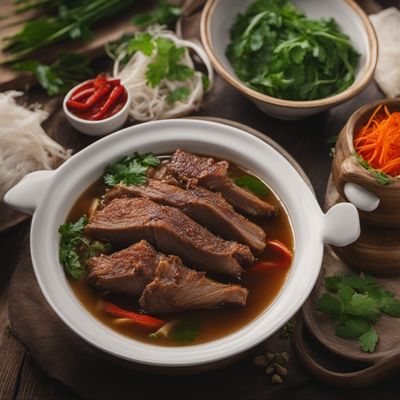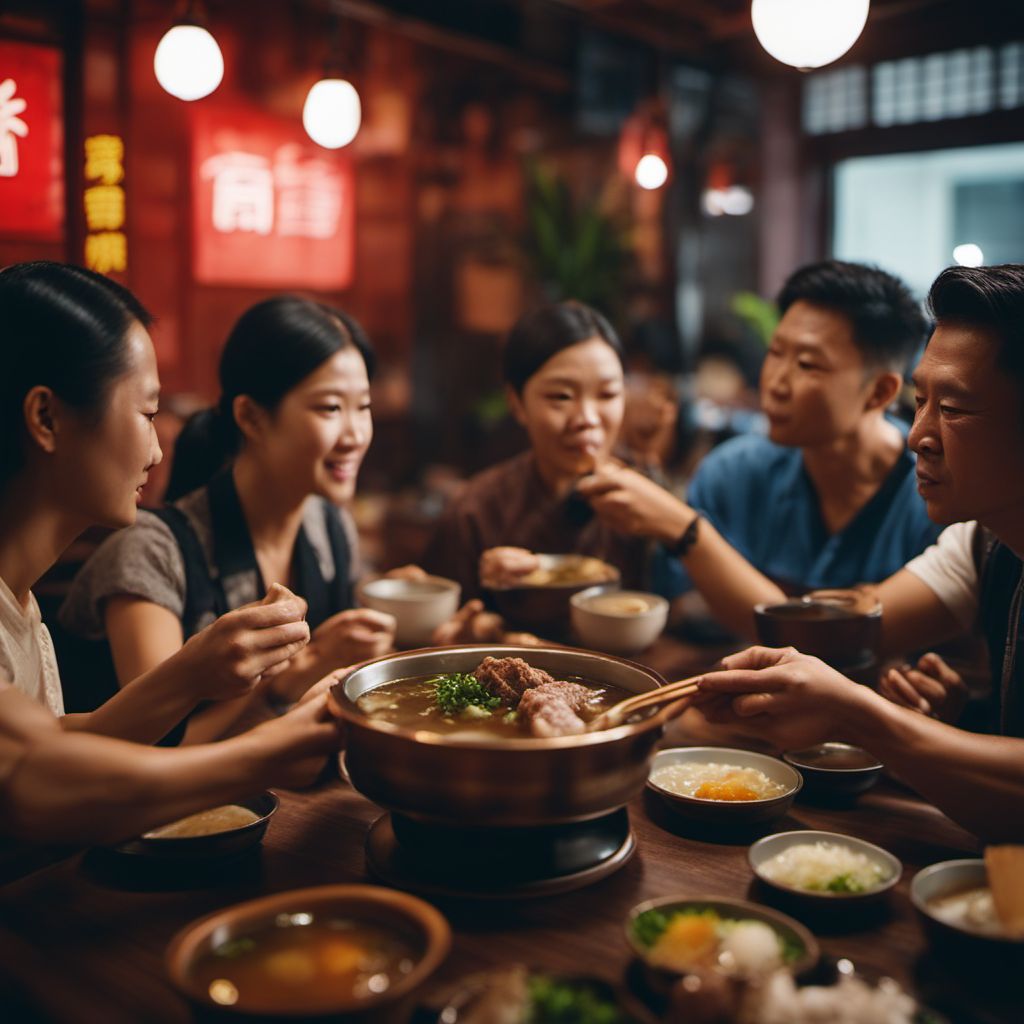
Dish
Bak kut teh
Pork rib soup
Bak kut teh is made with pork ribs that are simmered in a broth made with a variety of herbs and spices. The soup is typically served with rice and a side of vegetables. The herbs and spices used in the broth can vary depending on the region, but typically include garlic, star anise, cinnamon, and cloves. The dish is known for its rich and complex flavor, and is a favorite among locals and tourists alike.
Origins and history
Bak kut teh is believed to have originated in the Hokkien community in Malaysia and Singapore. It was traditionally eaten as a breakfast dish by laborers and workers. Today, it is a popular dish that can be found in many restaurants and hawker centers throughout the region.
Dietary considerations
Bak kut teh is not suitable for vegetarians or vegans as it contains pork. It is also high in sodium, so those with high blood pressure should consume it in moderation.
Variations
There are many variations of bak kut teh, including a dry version that is served with soy sauce and chili paste, and a seafood version that is made with prawns and fish.
Presentation and garnishing
Bak kut teh is typically served in a clay pot or bowl, and is garnished with chopped green onions and cilantro.
Tips & Tricks
To enhance the flavor of the soup, add a few drops of dark soy sauce and a dash of white pepper.
Side-dishes
Bak kut teh is typically served with rice and a side of vegetables such as bok choy or Chinese broccoli.
Drink pairings
Bak kut teh pairs well with Chinese tea, particularly oolong tea.
Delicious Bak kut teh recipes
More dishes from this category... Browse all »

Arganak
Armenian cuisine

Bakwan malang
Indonesian cuisine

Beyran çorbası
Turkish cuisine

Borș de miel
Romanian cuisine
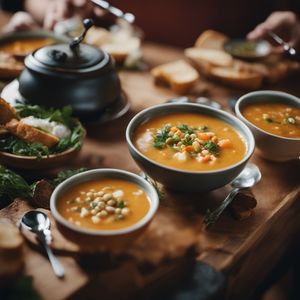
Braveća juha
Croatian cuisine
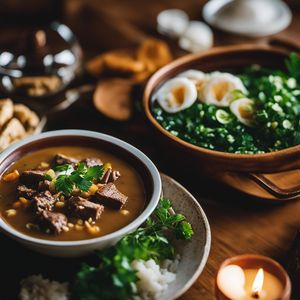
Bulalô
Filipino cuisine

Caldo de costilla
Colombian cuisine

Carne en su jugo
Mexican cuisine
More cuisines from this region... Browse all »

Arab cuisine
Spicy, Sweet, Sour, Savory
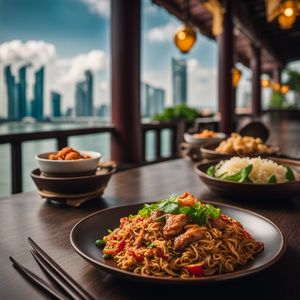
Eurasian cuisine of Singapore and Malaysia
Spicy, Sweet, Sour, Savory
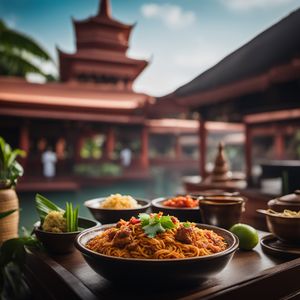
Malay cuisine
Spicy, Sweet, Sour, Salty, Umami
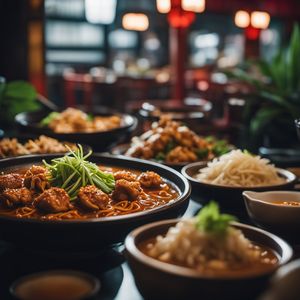
Malaysian Chinese cuisine
Spicy, Sweet, Sour, Salty, Umami
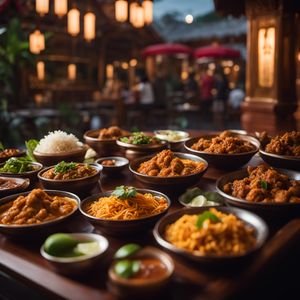
Malaysian Indian cuisine
Spicy, Sweet, Sour, Salty, Umami
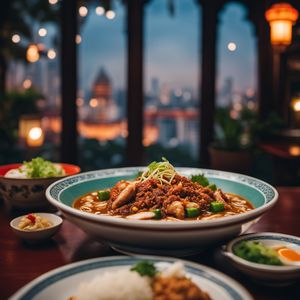
Peranakan cuisine
Spicy, Sweet, Sour, Salty, Umami
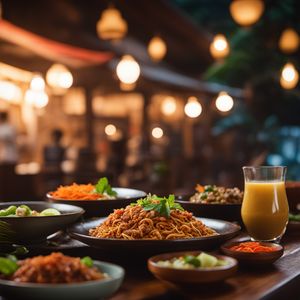
Sabahan cuisine
Spicy, Sour, Sweet, Savory
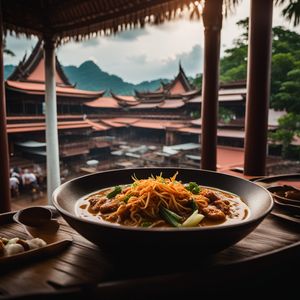
Sarawakian cuisine
Spicy, Sour, Sweet, Savory

